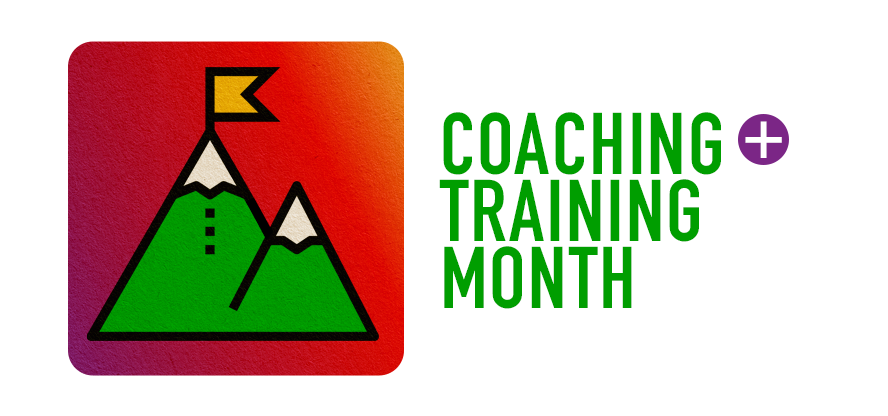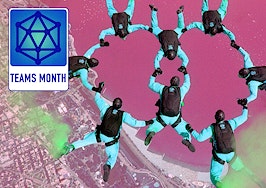 In today’s virtual, work-from-home environment, agents are seeking training and coaching in entirely new ways. In August, we’re laser-focused on what defines good coaching today and how to get the most out of it.
In today’s virtual, work-from-home environment, agents are seeking training and coaching in entirely new ways. In August, we’re laser-focused on what defines good coaching today and how to get the most out of it.
Liz Bentley, executive coach and founder of Liz Bentley Associates, spent nearly a decade in the corporate world before taking an extended career break to parent her young children before ultimately transitioning to coaching. Her innate competitive ambition (Bentley was a Division I soccer and lacrosse athlete at the University of Virginia) and curiosity about the human psyche have driven her to help professionals at all levels “unlock their power” through her coaching program.
Bentley recently spoke to Inman about her four-member coaching team’s philosophy and how they apply it to real estate professionals.
This interview has been lightly edited and condensed for clarity.
Inman News: How did you get into coaching?

Liz Bentley
Liz Bentley: I started about 12 years ago … I originally worked in media in television at CBS and then at Conde Nast in magazines. And I was kind of climbing the ladder there and ended up having a pretty big sales job with a number of offices reporting to me. And then I had a child, and my husband at the time had a big job in banking and neither of us was ever home, so I decided to quit and stay home and I had three children. After about six years, I had my three children and I was getting bored … And I was at a dinner party and sitting next to somebody who was a really big wig at Morgan Stanley, really brilliant guy, and he said ‘Liz, I hired a coach and she’s changed my life.’ And I was like, ‘What?’ And I then heard that story a couple other times, and what was so interesting to me is that I was a Division I athlete in college in two sports and always had been in competitive sports my whole life. So, I had always had great coaches and was always very connected to coaching. And then I was a psych major also in college, so I always loved human behavior … So, when I heard about this, I went over back to NYU and I got certified in coaching, and then I just started doing it.
I just loved it … So, I developed this business and it just kind of took off one thing at a time. And I started speaking and running trainings and started hiring coaches around me and then kind of teaching my philosophy and my coaching to my coaches, and we spread across the country.
And I’ve always kind of been pushed up to the top. Like, I work with a lot of the top agents. I personally really understand high-performance mindsets. I really get those people, both in the corporate world and in the real estate world. But, honestly we connect with people at all levels, because my belief system is that everyone can be an Olympian — it doesn’t take the best athlete …
So, in coaching, what I have found is that people go on two journeys in their life — they go on what I call their inner journey, which is what goes on in the inside of your body — your thinking, your belief system, your mindset, your heart and soul, your values and how you feel on your inside. And then you have your outer journey, and that’s the world around you. That’s your clients and your friends and the marketplace and your family and the COVID virus and everything. So it’s all these things on the outside of you that press up against your life and push you in all these directions.
So, I see that there’s two forms of coaching: there’s what I call transactional coaching and there’s what I call transformational coaching, and we do both of those things in one. So, transactional coaching is coaching you on your outer journey, so that’s coming in and saying, ‘OK, this is how many mailings you need to do a week, and this is what your marketing plan should be …’ But the problem is our inner journey sabotages us along the way. And our inner journey sometimes stops us from being able to make some of those things in our outer journey. That’s for all of us — there’s no one that doesn’t happen to. So then what we do is the inner journey work, and that’s the transformational work that helps you unlock your power so that you can really rise …
And then the other thing that’s interesting about our business, is because we coach in the corporate world, is we bring those strategies over to the real estate world … For real estate brokers, they become major players running big businesses and they haven’t learned the one-on-one of management yet. And so, teaching them basic management skills, and mindset, and tricks of the trade, and perspective, can be transformational for them … So, all day long, I’m spewing out corporate strategies where they’re relevant to my real estate brokers. And I’ve found that teaching a lot of my brokers how to think more like a CEO really shifts their business at the high level …
At the lower levels, people who are more mid-tier brokers, what we see at that level is getting out of your own way. I mean, let me be clear — we’re all trying to get out of our own way, don’t you worry. No one escapes that. But, the mid and lower tiers, there are more basic hurdles you need to jump.
You’ve touched on this a bit already, but how would you say your coaching of real estate professionals is different from coaching of other professionals?
Some of it’s just related to the industry. In many ways, it’s the same.
First of all, just in coaching real estate professionals you shift a lot just depending on who you’re talking to. If you’re coaching someone who’s doing $200 million a year you’re coaching them differently from someone who’s doing $10 million a year. And my $200 million a year real estate executive is going to be closer to my CEO as far as personality and mindset. And then the difference is the tactics. Like, the CEO has to deal with the board of directors and navigating the public and the PR … I think there are themes that go across every single person, and then you specify to their level of work, where they are, what they need to do to get to the next level, and then their industry.
What would you say a typical coaching session looks like, or are they too diverse to make a general statement?
Our style is to be customized to every individual. We do a couple things at the beginning that are with everybody where we like to … The first three months, we meet once a week, and then after that we meet twice a month. And the first three months are to really to get to know you on all levels. Know your team, know you, kind of get you inside and out. And then from there, we can be more strategic going forward and just develop a strategy together.
Other than doing assessments, we really like to customize it to the person and understand what their specific journey is and where they’re stuck.
I think that one of the things that makes us [different] is we customize, because we believe that everybody’s different. And we have the tools to do whatever needs to be done. We don’t have to follow a script. It takes me a lot to train my coaches to get to that level. Because other coaching companies have created a script, right? And that’s so they can give it to a lot of people.
If you could share one piece of advice with real estate professionals, what would it be?
When we started the year, we said that this year what it was going to take to be successful was grit, integrity and work ethic.
And I think those success factors are exactly what it’s going to take this year. Because grit is about being with your goals and your dreams for the long haul — not for the short run — no matter what the circumstance is. And this is an incredible time of grit. And it’s going to take the work ethic to really stay with it. But people really want integrity now more than ever, they don’t want to be sold … And they want authenticity.
So, I think this is a time that you really need those things. You need the grit to survive yourself, and the work ethic to stay in it, and you really need the integrity to just really be able to connect with people. I just think that people are going through really hard times in different ways.









